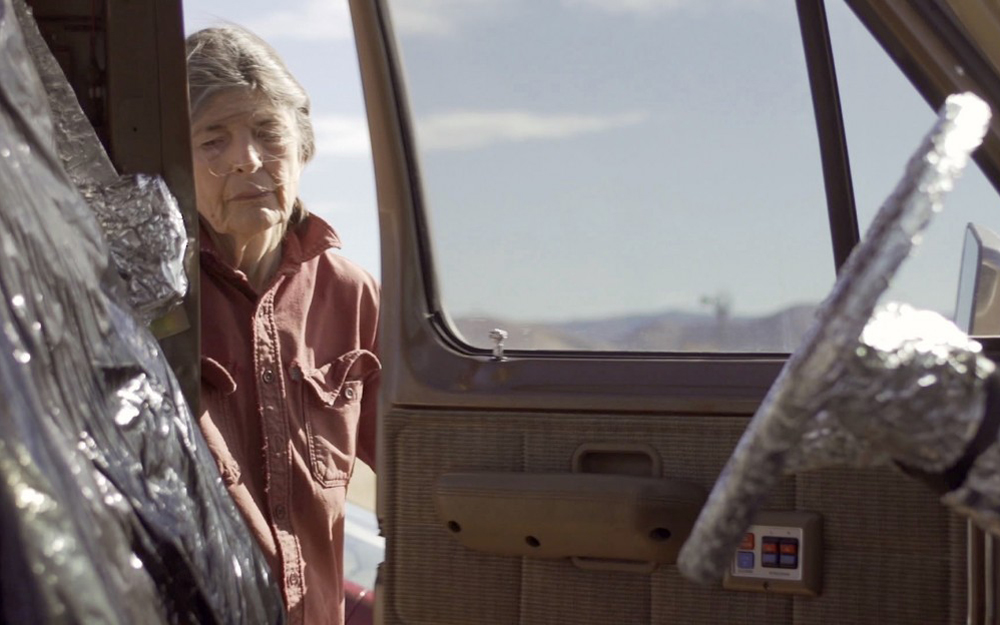“What’s more interesting – the cage or the prisoner?” Nathan, one of the subjects in “The Sensitives,” asks rhetorically, musing on why he doesn’t write songs about his condition. His guitar is one of the few ways he can escape his physical trappings in Western Arizona, where he lives with his brother Sam and mother Karen far from civilization so that they can’t be bothered by the chemicals and electricity that they’ve long been crippled by. Taken care of by Karen’s mother Fay, who fears she’s “helped them to their doom” by enabling such a stripped down existence with grocery runs and other errands that would bring them into contact with the harsh bright lights of the city, the family’s cloistered life in the desert makes you wonder whether they’re living any kind of life at all.
To answer Nathan’s question, it’s lurid interest in the “cage” that will likely bring you to see Drew Xanthopoulos’ feature directorial debut in the first place since it’s all too easy to dismiss the people that live inside as much off the reservation mentally as they are physically. But in his careful approach to his subjects, Xanthopoulos breaks through where they cannot in channeling the frustration of their condition to the larger world they can’t engage with, showing the claustrophobia created by their allergies to urban life, whether imagined or not. This is particularly impressive considering how airy “The Sensitives” comes across, with Xanthopoulos managing to be both free and graceful in operating his own camera while capturing the intensity and intimacy of their struggle with ordinary daily tasks.
The film tracks not only the aforementioned Alear family, but also Susie, a refugee from San Mateo who has kept her own chemical sensitivities at bay enough to serve as a den mother to others by taking their calls in her small cabin in Snowflake, Arizona and calling the FCC to check up on complaints about radio frequencies, and Joe, and his supportive wife Lanie, who still live in the metropolis of Kansas City, but are looking to move elsewhere as Joe’s symptoms become increasingly inhibiting. The stories compliment each other well in finding three stages of activity – or lack thereof, in the case of the completely immobilized Alears – but are individually compelling as Joe and Lanie are confronted with the lives they had before Joe became ill with their completely healthy, grown children around to constantly remind them, and Susie’s advocacy on behalf of those suffering as she does, ironically, pushes her out into the outside to speak for them.
Both in front of the camera — and likely behind it, Xanthopoulos allows each of the subjects to move at their own pace, but he and editor David Fabelo settle into an agreeably lilting rhythm that reflects life progressing even when the film’s subjects are threatened with being left behind. Empathetic yet nonjudgmental, “The Sensitives” lets you come to your own conclusions about whether the suffering is self-imposed, even if the maladies are real, but in creating such an indelible impression of the people it spends time with, it not only articulates the power of something that can’t be seen in such a way that it can be felt, but in demonstrating the power of the mind, it’s only fitting that it’s a film that refuses to leave yours when it ends.
“The Sensitives” does not yet have U.S. distribution.





Comments 1